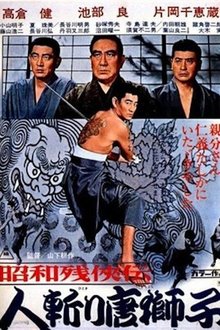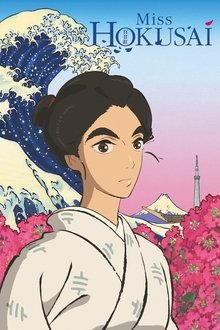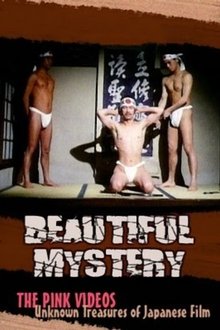Related Movies
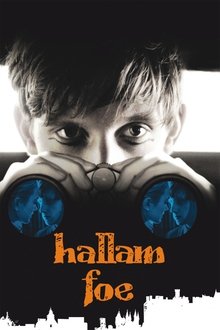
Hallam Foe (2007)
Hallam's talent for spying on people reveals his darkest fears-and his most peculiar desires. Driven to expose the true cause of his mother's death, he instead finds himself searching the rooftops of the city for love.
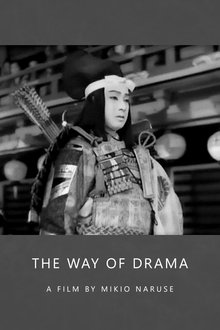
The Way of Drama (1944)
The Way of Drama unfolds in the world of kabuki in Osaka, but also addresses the politics of popular culture and the rivalry between theatrical styles like those used by amateur actors to dramatise contemporary events.

Wasabi (2001)
Hubert is a French policeman with very sharp methods. After being forced to take 2 months off by his boss, who doesn't share his view on working methods, he goes back to Japan, where he used to work 19 years ago, to settle the probate of his girlfriend who left him shortly after marriage without a trace.
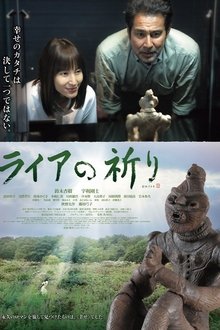
Raia Prays For… (2015)
Goro is an archeologist, fascinated with the national treasure Gassho clay figure and remains from the Jomon period. He meets a woman, Momoko who is timid with love. Momoko often has memories from ancient times and landscapes of the heart in her dreams. She tells Goro about her dream and their relationship deepens.

Lupin the 3rd: Goemon's Blood Spray (2017)
A yakuza boss hires Goemon Ishikawa, a modern day samurai, to protect him aboard his cruise ship casino. Everything goes sideways when the famous thief, Lupin the Third, tries to rob the vessel. Lupin's being hunted by a powerful and mysterious man: the so called “Ghost of Bermuda.” With Goemon's employer dead in the ensuing chaos, his honor is at stake, and the only way to preserve it is with blood. But this opponent is like no other, and to make things right, Goemon may need to sharpen not only his sword, but himself as well!

AIBOU: The Movie IV (2017)
A mysterious international crime organization makes a demand of 900 million yen from the Japanese government for the release of hostages. The group then targets a victory parade of a world sports game to commit indiscriminate terror.

The Bad Boss (1968)
The first in what would become Toei's most successful, longest-running bosozoku film series. It lasted from 1968 till 1972 through sixteen films.
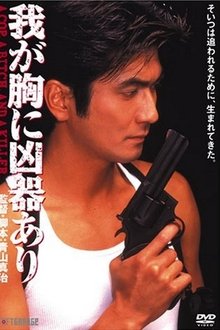
A Weapon in My Heart (1996)
A detective and his partner track down a call girl with information about a drug cartel. After taking her into custody, they are attacked by cartel members. The detective and the woman manage to escape, but they are soon hounded by a professional hitman hired to eliminate them and recover the heroin stolen by the woman.

Memoirs of a Geisha (2005)
In the years before World War II, a penniless Japanese child is torn from her family to work as a maid in a geisha house.

Mothra vs. Godzilla (1964)
Journalists Ichiro Sakai and Junko cover the wreckage of a typhoon when an enormous egg is found and claimed by greedy entrepreneurs. Mothra's fairies arrive and are aided by the journalists in a plea for its return. As their requests are denied, Godzilla arises near Nagoya and the people of Infant Island must decide if they are willing to answer Japan's own pleas for help.

To End All Wars (2001)
Based on a real-life story, this drama focuses on a small group of Allied soldiers in Burma who are held captive by the Japanese. Capt. Ernest Gordon, Lt. Jim Reardon and Maj. Ian Campbell are among the military officers kept imprisoned and routinely beaten and deprived of food. While Campbell wants to rebel and attempt an escape, Gordon tries to take a more stoic approach, an attitude that proves to be surprisingly resonant.

State of Grace (1990)
Hell's Kitchen, New York. Terry Noonan returns home after a ten-year absence. He soon reconnects with Jackie, a childhood friend and member of the Irish mob, and rekindles his love affair with Jackie's sister Kathleen.

Inu-Oh (2022)
A cursed dancer and a blind musician — both ostracized by society — become business partners and inseparable friends as their larger-than-life concerts propel them to stardom in 14th century Japan.

Kill Bill: Vol. 1 (2003)
An assassin is shot by her ruthless employer, Bill, and other members of their assassination circle – but she lives to plot her vengeance.
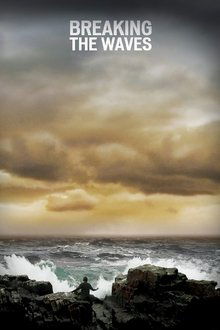
Breaking the Waves (1996)
In a small, conservative Scottish village, an oilman is paralyzed in an accident. His wife, who prayed for his return, feels guilty; even more, when he urges her to have sex with another.


